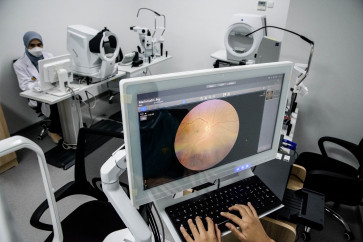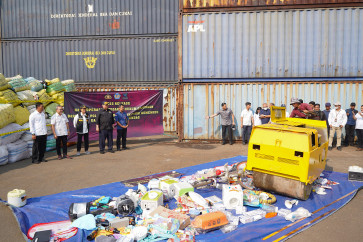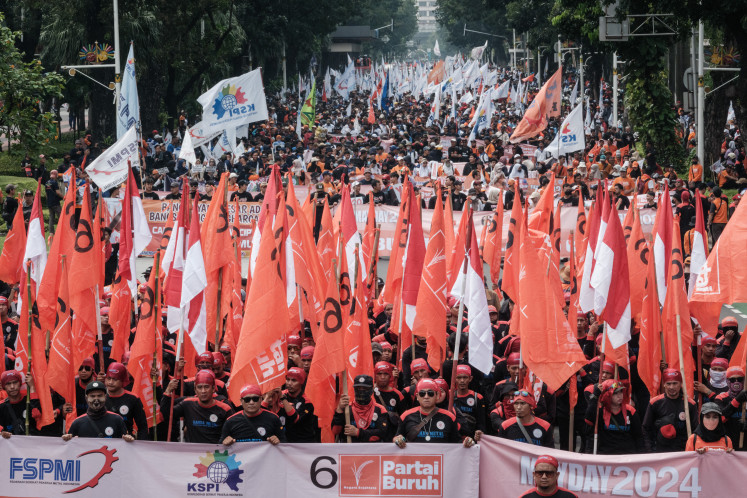Breast-feeding mothers still out of place in some offices
Various organizations and the central government have recently campaigned for mothers to breast-feed newborn children instead of other methods
Change Size

V
arious organizations and the central government have recently campaigned for mothers to breast-feed newborn children instead of other methods.
Supporters of breast-feeding said that they were critical of hospitals that offered infant formula milk to mothers who just gave birth.
The activists railed at baby-formula advertisements, especially at ads that imply formula can replace breast milk.
Mothers’ reactions to the campaigns, which promote breast-feeding as the best way to bond with and nourish babies, have varied from relief to anxiety.
Some are relieved to learn that the best way to feed their newborns does not cost a thing. Others are worried that they cannot leave their jobs to breast-feed.
For some people, breast-feeding means giving up work and a career.
“I didn’t get a job when I gave birth to my first child. I simply couldn’t leave him,” Sandra, mother of David, now two and a half years old, told The Jakarta Post.
Sandra nursed David until he has 2, but did not get a job to support her family, even though David’s father was still in college and could not work.
Six months ago, Sandra said she decided that she could no longer ask for her parents’ support and found a job at a vehicle auctioning company.
Sandra must travel out of town and she often returns home late from work. David now stays at her in-laws’ house and Sandra said she only sees her son once a week.
It is impossible to breast-feed David at her present job because her workplace does not have a
childcare facility or breast-feeding room.
Company policy grants female workers three months childbirth leave, but employees cannot
bring their children to work, she added.
However in one small NGO office in South Jakarta, workers said that bringing babies to work is natural.
“I even bring my laptop here so I can work and watch over my son,” said Irma Hidayana, a communications specialist for Save the Children, in her office’s baby room.
She watched Angan, her 4- month-old son, play with another toddler, Lhea, 7 months, on the
colorful carpet of the NGO’s air-conditioned, 30-square-meter baby room.
Each child had a nanny, who, from time to time, tried to amuse them with pillow books and chiming mobiles.
Other parents, including the NGO’s manager, who also a mother, brought toys, a cot and other baby care items. The organization simply provided a room, she said.
A simple room goes a long way, the mothers said.
“When Angan is hungry, I can come down here and breast-feed him. It only takes about 10 minutes,” Irma said.
Patricia said that bringing a baby to work is more practical than breast pumps.
“Pumping can take me about an hour. We also have to sterilize the bottles,” she said.
The mothers said that they could take their babies to meetings and on field assignments, even though babies and nannies consume more space in company vehicles.
Irma and Patricia said that bringing their babies to work did not make them less productive.
“On the contrary, if I leave my child at home, I will constantly be worried about her,” said Patricia, who previously did not bring her daughter to the office.
Krishna Putra, the NGO’s Operations and Human Resources Director, agreed.
“As long as [parents] get their work done, there’s nothing to worry about. [A baby room] could increase employee loyalty and performance,” he said.
Breast-feeding expert and campaigner Utami Roesli said that is better for mothers to nurse babies directly and not to use the breast-pump system.
She said that not all women can bring their nannies and babies to work, especially if they rely on public transport.
Workplace breast-feeding facilities, such as a pumping room or a refrigerator to store milk, are important even if they are not used by all employees, Utami said.
The 2009 law on health stipulates that all babies, except for medical reasons, have the right to be nourished by breast milk exclusively until they are 6 months old and special facilities for breast-feeding must be provided in the workplace and in public areas.
“If workplaces do not provide such facilities, they are interfering with a child’s right to breast milk,” she said.









